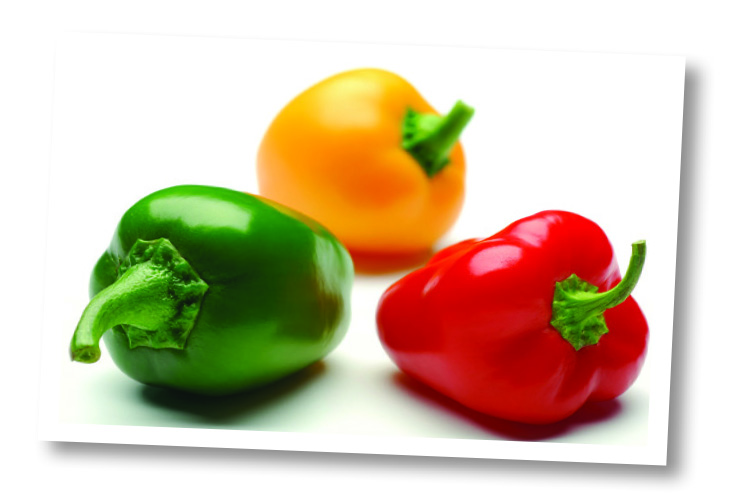Bell Pepper (Capsicum)
Bell pepper, or capsicum, originates from Mexico, Central and South America, and belong to the nightshade family, Capsicum annuum whose members include potatoes, tomatoes and eggplants.These bell shaped vegetables, with their tangy flavour and bright glossy exteriors, come in a variety of colours, including red, green, yellow, brown, orange and black.
- Soluble fibre in bell peppers binds with LDL cholesterol for excretion out of the body, thereby balancing cholesterol level
- Regular intake of folic acid, vitamin C, and beta-carotene, found in bell peppers, also helps lower the risk of colon cancer
- Supplies high levels of antioxidants to thwart free radicals attack
- The vitamin B6 and folic acid (folate) in bell peppers are the enzymes needed for the metabolism. All bell peppers are excellent sources of these two essential nutrients
- Red bell peppers have the highest amount of beta-cryptoxanthin, an orange-red carotenoid that lowers the risk of developing lung cancer
- Traditional Chinese Medicine (TCM) uses bell peppers as a natural treatment for certain medical conditions relating to digestive issues and blood circulation such as indigestion, loss of appetite, swelling, and food stagnation. In TCM terms, it can warm the spleen and stomach, control nausea and vomiting, and clear away phlegm and toxic materials
- Red bell peppers contain an additional carotenoid, lycopene that targets in preventing prostate cancer and cancers of the cervix, bladder and pancreas
- Macular degeneration, the prime cause of blindness in the aged, can be prevented by the regular intake of bell peppers, as they supply certain polynutrients (lutein and zeaxanthin) that prevent this degenerative process
- Beneficial against cataract, as they supply essential vitamins like vitamin C and beta-carotene
- Studies show that consumption of bell peppers and chili peppers, strengthens the body defense system against inflammatory polyarthritis, which is a type of RA (Rheumatoid Arthritis) involving two or more joints
- Eating red or yellow bell peppers provides 3 to 4 times more vitamin C than the daily value. In fact, a green bell pepper contains twice as much vitamin C than an orange
















